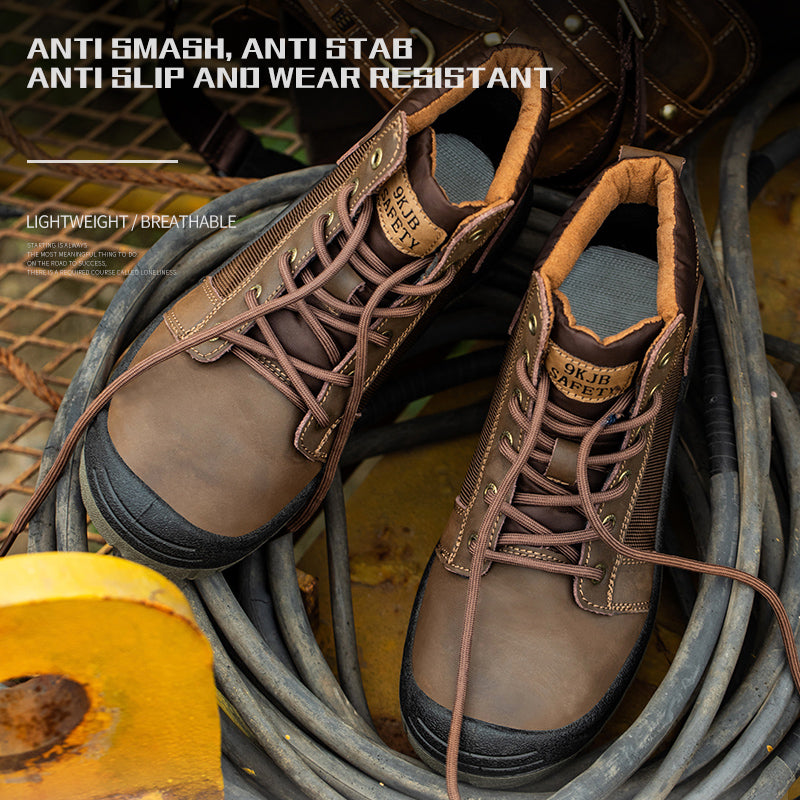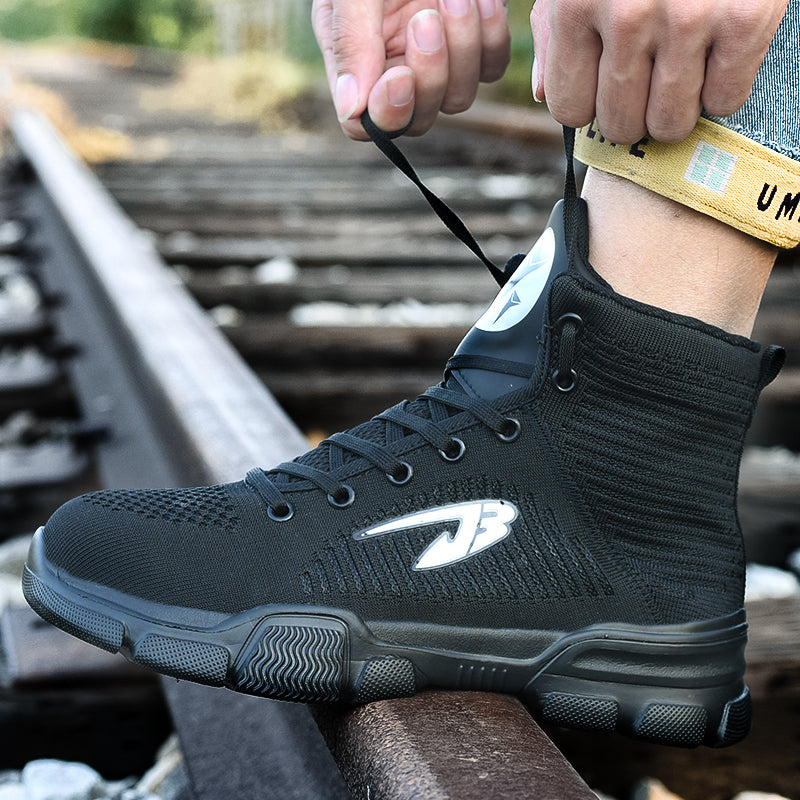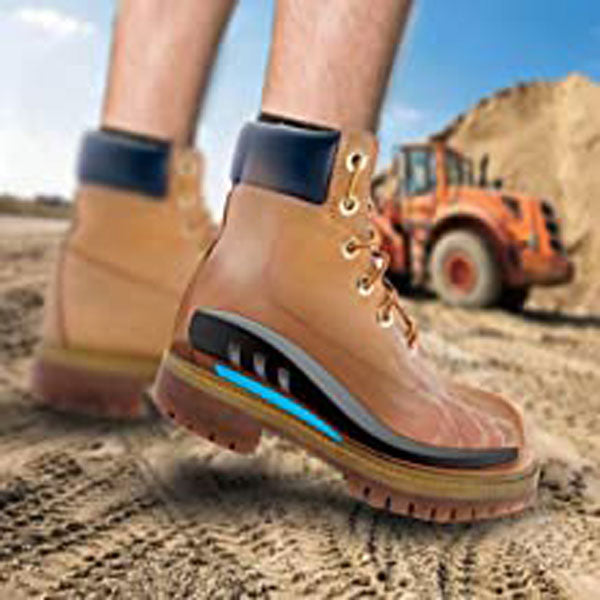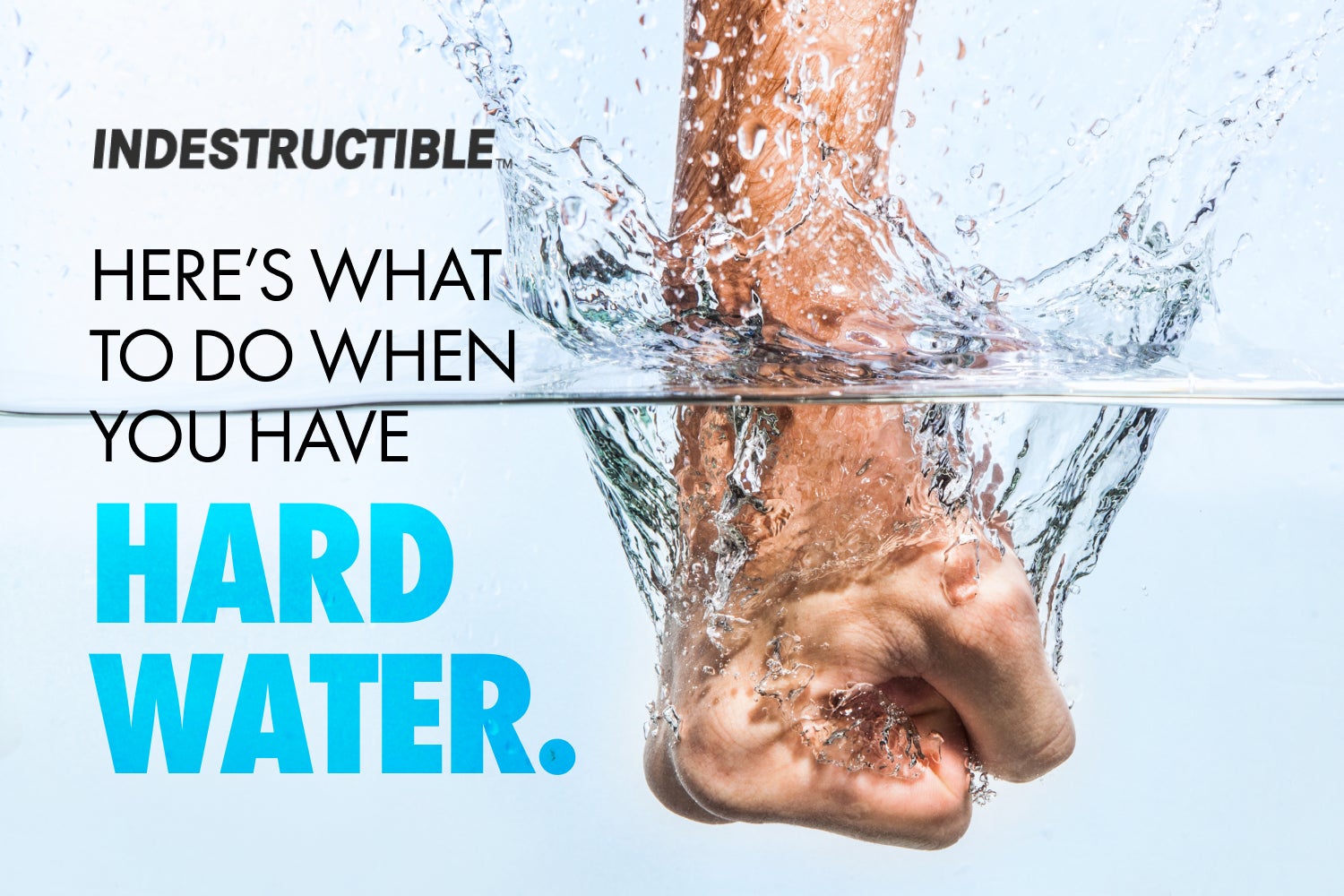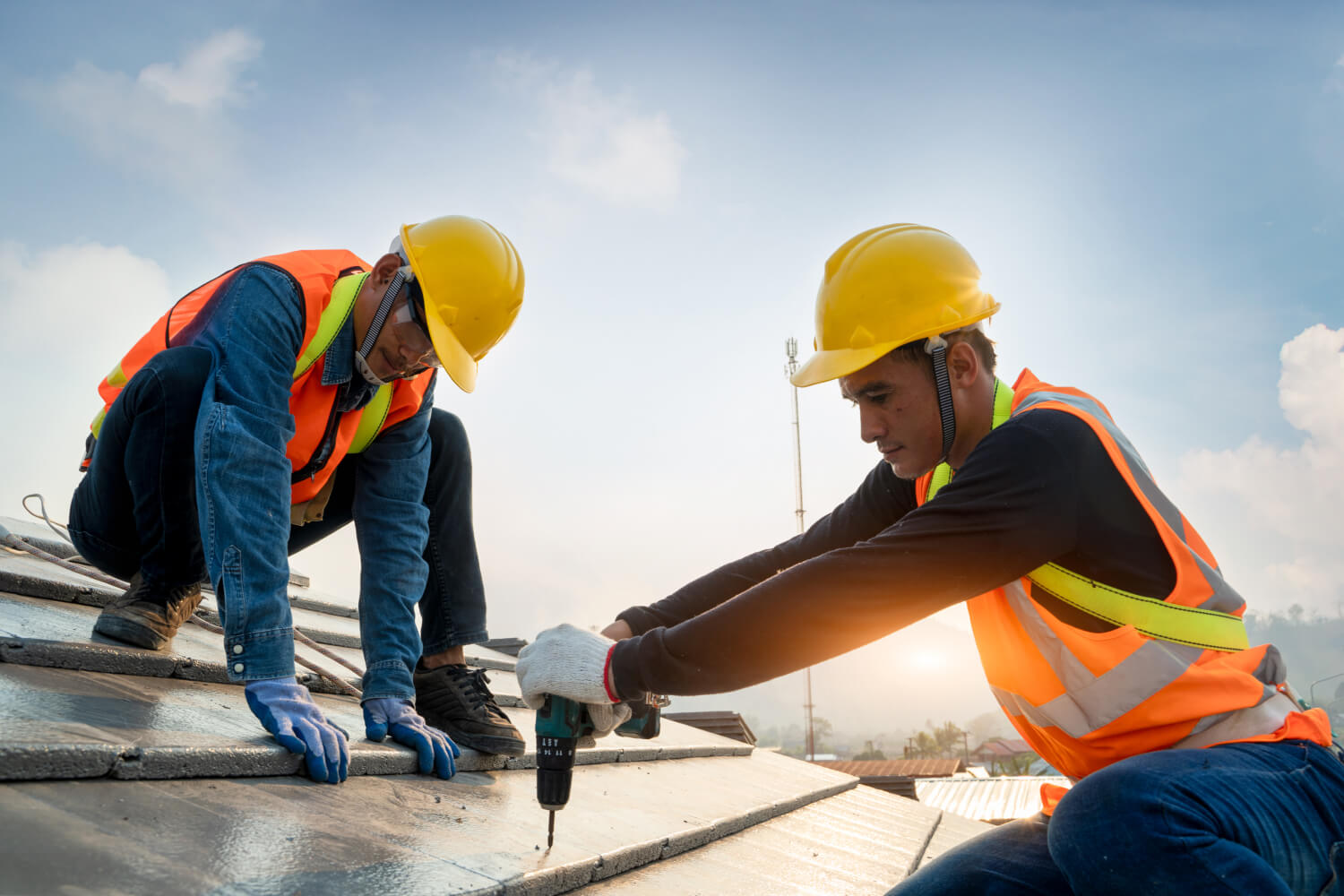There are more homes with hard water than you’d expect. Nearly 90% of the houses in the U.S. alone have hard water. It’s a common problem, but many homes don’t come with water softeners.
Living With Hard Water.
We've compiled some of the best tips and tricks to living with hard water. Let's dive into hard water and how you can deal with it.
What is hard water?
Water contains minerals and chemicals. It's the concentration of certain minerals that determine the "hardness" of the water.
Primarily, calcium and magnesium determine your water's hardness. Higher levels increase the hardness.
Is hard water bad for your body?
Health-wise there are no serious adverse health problems associated with drinking hard water. Yet, some people with certain sensitivities can notice issues with hard water.
- Sensitive skin conditions may be more difficult to manage.
- Dry hair can be made worse with hard water and even lead to hair loss over time.
- Hard water can cause staining of the teeth, much the same way as many food and beverages do.
- Long-term consumption of hard water can affect other health issues, although the details are still a matter of debate among experts.
What are the signs of hard water?
- If your water is hard, you may need to rinse your hands longer. Soap reacts to calcium and forms soap scum.
- You find spots on your glasses and silverware when you take them out of the dishwasher due to deposits of calcium carbonate.
- Your clothes get mineral stains on them from the washer. (Hard water tends to wear them out faster too.)
- If hard water is causing mineral deposits to build up in the pipes, you may notice less water pressure in your home.
Problem Areas In The Home
Area #1: Hot Water Heater

Hard water causes limescale to form on the heating element, as well as causing mineral deposits to settle at the bottom of the tank. This can shorten the life of the hot water heater dramatically and decrease available hot water.
Prevention tips:
- Flush your hot water heater to drain it twice a year.
- Keep the temperature at 120℉ and no higher.
- Use vinegar to clean it, following qualified homeowner DIY instructions carefully. Ask your service technician for suggestions.
Area #2: Sink and Faucets
Hard water will leave stubborn deposits that can prove difficult to clean up.
Prevention tips:
- Clean your fixtures regularly with an all-natural hard water spot remover: a solution of vinegar, water, a splash of lemon juice, and a drop of liquid dish detergent in a spray bottle.
- Dry the surfaces immediately after every use to prevent water from evaporating on them and leaving water spots behind.
Area #3: Tubs and Showers
When you have hard water, soap can't dissolve and rinse away as effectively. This creates a residue that can be impossible to clean up and make your bathroom unattractive.
Prevention tips:
- Store a squeegee in your shower and use it after every shower to remove the water from the walls and glass.
- Wipe the inside of the shower down with a microfiber towel after each use and spray it with a daily shower cleaner.
- Use a sealer designed to protect glass from hard water stains.
- Use equal parts vinegar and water on hard water stains.
- Spray lemon juice on hard water stains and let sit for 10-15 minutes.
Area #4: Appliances
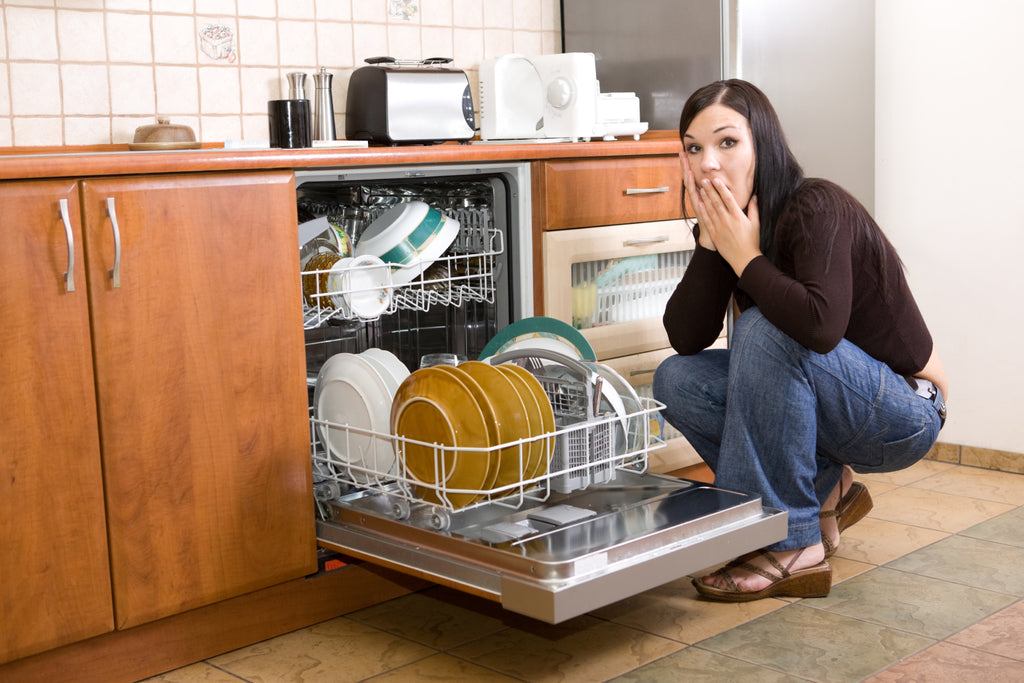
Your appliances that use water will suffer from shortened lifespans and be less effective. Maintenance issues from small water supply lines and narrow drain lines being blocked by mineral deposits will occur.
Prevention tips:
- Dishwasher: place a bowl of white vinegar into the top rack and use a cup of vinegar in the soap dish. Run the unit on the hottest setting for one cycle.
- Washing Machine: Occasionally run an empty load with hot water and 1-3 cups of vinegar.
- Coffee Maker: Run it with a mix of 50-50 white vinegar and very hot water according to the manufacturer’s instructions.
Area #5: Plumbing Connections
Hard water leaks can increase maintenance costs when mineral deposits form in the joint itself, corroding the pipe. You may have to cut away sections of the pipe to replace the affected joint.
Prevention tips:
- Best solution and most expensive: pull out the steel pipes and replace them with copper or PVC.
- Get a professional to flush out your pipes with a cleaning solution.
- Talk to a plumber about your options and what you should expect in future plumbing maintenance.
Everyday Problems of Living With Hard Water
It's not just dealing with increased home maintenance that makes living with hard water a challenge. It also has an effect on your everyday life. Here are some ways it affects you and how your family can deal with it.
Hard water and home cooking.
Cooking and cleaning for family meals and special occasions may require some adjustments on your part. The hard water can affect the flavor and color of your food and make kitchen chores more unpleasant.
Problem area #1; Baking

- Hard water affects yeast and gluten, so if you're having a hard time baking a cake properly or end up with tough and rubbery dough, it could be the water.
- Recipes using flour are susceptible to hard water, as the minerals can make it difficult for the flour to absorb water.
- Yeast performs best with a pH level just below 7. Hard water comes with a higher pH (more alkaline).
Problem area #2: Cooking Performance
- Certain vegetables become tough and lose some of their colors when boiled or blanched in hard water.
- Some noticed that hard water can increase your cooking times. Getting water to boil takes longer because hard water increases the boiling point.
- Hard water can have an odor or flavor that makes its way into dry foods, such as rice, noodles, and beans.
Solution for the kitchen: Reverse Osmosis
Adding a reverse osmosis system under your kitchen sink can help you enjoy water that's clean and refreshing. Not only can it improve your cooking, but it helps your coffee and tea taste better too.
Installing a reverse osmosis system will help save you from the nasty effects of hard water in your kitchen, and it can also be one of the most affordable solutions.
Hard Water and Your Skin
Hard water strips away your skin's natural moisture, leaving it dry. This leads to fine lines and wrinkles settling in more quickly than they otherwise would.
In addition, just like with your plumbing pipes, hard water causes your pores to clog. This happens when the minerals leave a build-up of soap residue over them.
Over the long term, hard water can contribute to the breakdown of collagen and aggravate skin conditions, such as eczema. In the short term, you may experience dry, flaky, itchy skin and itchy scalp.

Actions for the whole family:
- Use gentle, soap-free cleansers.
- Avoid extreme cold or hot water in the showers.
- Don't wash your face too frequently.
- Dab, rather than briskly rub, to dry off after washing.
- Use a rich moisturizing body lotion when your skin is still damp.
- Use fragrance-free body washes and moisturizers if you have sensitive skin.
Hard Water and Laundry
Scratchy, smelly fabric and stubborn stains may be caused by hard water. It can also cause your laundry colors to fade.
Your water's high mineral level can interfere with the laundry detergent and leave behind a build-up. This build-up can also help trap body sweat, creating odors as time goes by. It's also a contributor to stiff fabrics and yellow underarm stains.
How to counteract hard water's effects.
- Increase the amount of laundry detergent you use.
- Use a high-quality low-pH detergent for dissolving minerals and eliminating build-up.
- Choose a warmer wash cycle for loads suited for hotter water.

Hard Water and Your Hair
Hard water mixes with shampoo and forms a residue on your hair and scalp. This blocks your hair from absorbing the moisturizers in your conditioner.
The results can be dry, dull hair that's prone to tangles and breakages. In time, it can lead to hair loss and thinning hair.
Tips for protecting your hair:
- Install shower head water filters to reduce minerals and chlorine in your water.
- Use a clarifying shampoo once away to remove mineral build-up and give your hair some shine.
- Mix a tablespoon of vinegar with three cups of purified bottled water to make a naturally acidic rinse after washing your hair. Leave it on for 5 minutes before thoroughly rinsing your hair.
- Use a moisturizing hair mask or leave-in conditioner once a week.
- A final rinse with purified bottled water before you step out of the shower can help.
Dealing with hard water can be a pain, but you can enjoy a good home life by being diligent with your home maintenance and health care. Start putting these tips and techniques into practice and form prevention habits that will pay off for your whole family later on.

